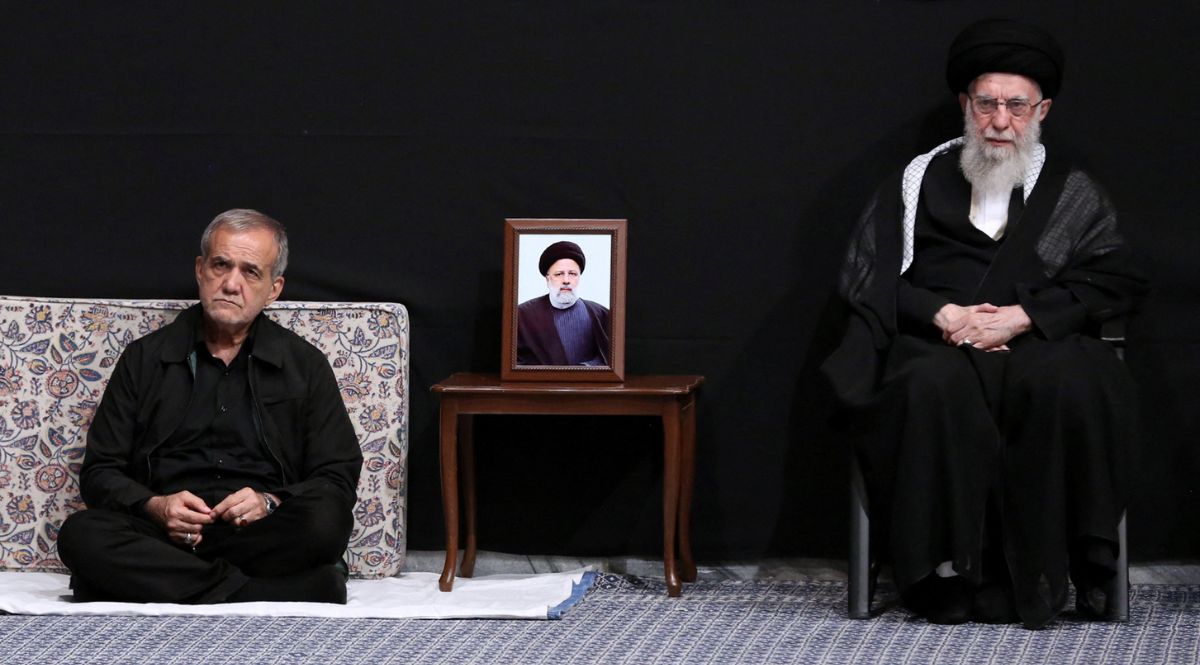Haniyeh Assassination and attack in Beirut Raise Risk of Regional Escalation
The killing of Hamas political leader Ismail Haniyeh in an Israeli attack in Tehran could deepen the current Middle East crisis on several levels. The assassination may result in a break in the Gaza ceasefire talks, but Hamas’ potential for reaction at this stage of the conflict remains increasingly limited. The extent of further escalation depends mainly on Iran’s response.
.png) Mussa Qawasma / Reuters / Forum
Mussa Qawasma / Reuters / Forum
Who was Haniyeh, and under what circumstances did he die?
Haniyeh has been Hamas’ political bureau chief since 2017, having previously headed its structures in the Gaza Strip and served as the Palestinian Authority prime minister for several months after the 2006 elections. Residing in Qatar, he was the organization’s main policy driver, coordinating with the leadership in Gaza. He was also Hamas’ highest-ranking external representative. In this role, he represented the group in relations with regional and extra-regional partners and intra-Palestinian relations with Fatah. On 30 July, he attended the inauguration of Iranian President Masoud Pezeshkian. On the night of 31 July, he was killed in a missile attack carried out by Israel in Tehran.
What is the context of the attack?
Following the 7 October attack by Hamas, Israel announced it would target its leaders, indicating that political leadership residing outside the Gaza Strip would also be included. In January, Saleh al-Arouri, a Haniyeh deputy, was killed in Lebanon. In a bombing in Gaza in April, three of Haniyeh’s sons were killed. In mid-July, Israeli forces also attempted to eliminate Hamas’ military wing commander, Mohammed Deif, but neither Israel nor Hamas confirmed his death. Haniyeh’s visit to Iran, considered by Israel to be an enemy state, was a factor in making the assassination possible as carrying out such an operation in Turkey or Qatar, for example, would have carried a much more significant political cost for Israel. At the same time, the International Criminal Court was considering issuing an arrest warrant for Haniyeh (as well as other Hamas leaders) in the context of the crimes committed against Israeli civilians on 7 October and after.
What does Haniyeh’s assassination mean for the Gaza war?
His death will, in all likelihood, bring to a halt the ongoing negotiations between Hamas and Israel for a ceasefire and prisoner exchange based on a plan put forward by the U.S. The parties’ positions on the deal were expected to converge, but additional conditions declared in July by Israeli Prime Minister Benjamin Netanyahu further delayed the finalisation of the talks. The Israeli authorities’ killing of Haniyeh has disrupted the process, which will mean continued fighting in the Gaza Strip (where the number of Palestinian dead, according to Gaza officials’ figures, is about 40,000) and the potential that Israel has antagonised relations with mediators Egypt and Qatar. At the same time, Hamas has no prospect for ending the fighting other than the negotiating path (besides the improbability of total surrender or a sudden change in Israel’s position under international pressure). Hamas’ armed response to Haniyeh’s death will be minimal due to the organization’s weakened capabilities, including in the West Bank.
What is the significance of Israel’s simultaneous attacks on Hezbollah’s military leadership?
The timing of Haniyeh’s assassination came just after an Israeli raid on Beirut (July 30) that killed Fuad Shukr, one of Hezbollah’s top commanders and the highest-ranking member of the organisation killed by Israel since the start of the war. The raid was, in turn, a response to Hezbollah rocket fire on 27 July that resulted in the deaths of 12 children in the village of Majdal Shams in the Golan Heights. The assassination of Haniyeh increases the likelihood of new Hezbollah attacks on Israel, both as a “solidarity” response to the death of an ally and in cooperation with Iran. At the same time, the scenario of Israeli intervention in southern Lebanon remains unlikely given the scale of its involvement in the Gaza Strip and growing criticism of its actions by foreign partners.
How might Iran respond?
The attacks in Tehran and Beirut are primarily an image blow to the Iranian leadership, especially to the new president, who represents the reformist camp. The announced Iranian response, combined with the escalating Israel-Hezbollah situation, threatens a broader confrontation between the parties. Its scale could be larger than the April rocket attack and more coordinated from different sections (Lebanon, Iraq, Yemen). Iran’s actions may also extend beyond the Middle East to include Israeli targets in other regions (e.g., Asia) or target Israel’s allies. To repel a massive attack like that in April, Israel will be even more dependent on intelligence and military support from the U.S. and allied Arab states.





